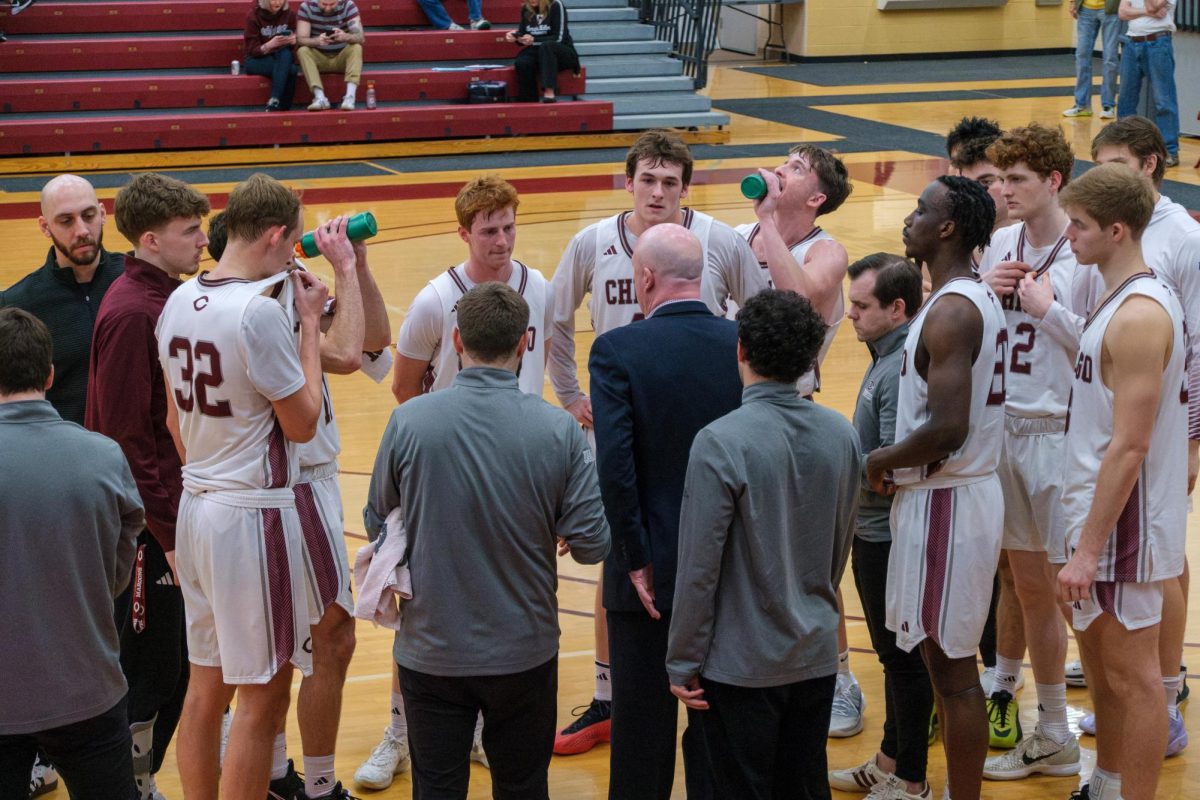I was recently speaking with second-year tennis standout Alex Golovin when I found out about an incredible journey he went through. I didn’t think it was incredible because of the effort and endurance it took Alex to complete this endeavor. I didn’t think it was incredible because he was the only person under the age of 21 to go through this in 2011. I knew it was incredible because of the circumstances surrounding the journey.
This endeavor was actually an out-of-the-ordinary race. Alex ran in the North Face Endurance Challenge on September 17th in Madison, Wisconsin for a microfinance group called Kiva. Wearing a colorful jersey with the organization’s logo on it for the sole reason of supporting the group, Alex fought off malfunctions along the way to complete the 50-mile race in 11 hours and 19 minutes.
There is so much to learn from Alex’s story, yet one overarching element caught my eye: When you’re given many opportunities in your life, giving back means so much to those less fortunate. But before I expand on that, I’d like to share in detail Alex’s story to fully assess the meaning of giving back.
In his first year at Chicago, Alex was introduced to Kiva by his roommate. After voicing initial interest, he found out that Kiva’s goals were plain and simple—lend to small businesses in underdeveloped nations through small internet donations.
Alex immediately wanted to help in any way he could. Unfortunately, being a full-time student rendered him unable to actively volunteer. So, he wrote to the company and found out he could market the microfinance group by wearing Kiva gear during an athletic event.
After extensive research, the Chicago second-year found the ideal way to showcase Kiva—run in the North Face Endurance Challenge in Madison. The event, which called for a 50-mile run in stages of five to seven miles at a time, would be the longest Alex had ever run. Previously, the most he had run was 20 miles.
The tennis phenom could never have predicted the outcome of the race. On the day of the competition before the race began, many curious spectators and competitors who saw Alex’s colorful jersey asked him about Kiva, giving him the opportunity to spread the word about his organization.
Alex almost didn’t finish the race. In only the race’s second mile, his Camelbak exploded and Alex’s jersey was soaked, leaving him only able to carry a liter of water at a time.
But Alex persevered. With Kiva in the back of his mind and on the front of his jersey, nothing would stop the fiery athlete. Soreness, fatigue, and even going off-course in the dark for about five miles were not enough to halt Alex from completing the race. 11 hours and 19 minutes later, the goal Alex worked for was accomplished. He finished in 121st place for the entire field and was the only person under the age of 21 to complete the race
There are a couple of lessons to be learned from Alex’s incredible run. While they may sound cliché, each of them was important in making his goal a reality.
The first is to fight for what you want. Naturally, I don’t mean for you to become involved in a physical altercation because you were unable to achieve your goal–quite the contrary, actually.
Fighting for your goals means to never give up. Alex could have easily stopped from contacting Kiva when he saw that he was unable to actively volunteer throughout the school year. Alex could have easily stopped from continuing the endurance run when his water pack exploded. Alex could have easily stopped from finishing the race when he ran five miles off course. But he did not. He persevered because he believed in the cause he was running for even though there weren’t any monetary gains for him.
University of Chicago students would not be where they are if they did not fight for their goals and persevere. Yet, just like Alex, we need to create goals which do not only benefit ourselves, but also those around us.
The most important lesson learned, and Alex would agree himself on this, is the statement I already mentioned earlier: When you’re given many opportunities in your life, giving back means so much to those less fortunate. Each and every student reading this article right now is fortunate. As Alex told me, there are hundreds of millions of people that do not have the privilege of attending such a fine institution and living in such a beautiful area. We all have our dorm rooms, our proper nourishment, and our health, but somewhere out there, people don’t.
As Chicago students attempt to receive the most out of their academic experiences as possible, there needs to be a moment where students step back and realize that grades do not mean everything in life.
Alex’s story is a prime example of what it means to be not only characterized as a student or as an athlete, but as someone who gives back.








